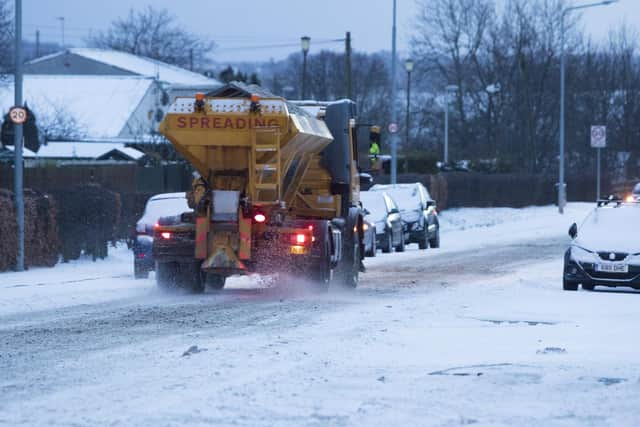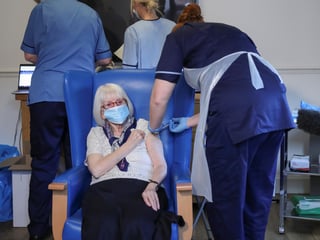Grit roads to reduce Covid-19 infections in Scottish hospitals, say surgeons
This article contains affiliate links. We may earn a small commission on items purchased through this article, but that does not affect our editorial judgement.
Dr John Thomson, vice-president of the Royal College of Emergency Medicine in Scotland, warned hospitals “do not have the capacity” to cope with a large number of falls or accidents as a result of ice and snow.
"If we see a big freeze and a number of fractures associated with the weather, we do not have the capacity to safely manage those patients,” he told The Times.
Advertisement
Hide AdAdvertisement
Hide Ad“The risk of catching Covid just by being in hospital waiting is significant. If you are elderly and require surgery, your mortality is significantly increased.”


Professor Michael Griffin, president of the Royal College of Surgeons of Edinburgh, said the icy conditions could be “treacherous” and encouraged people to come to the aid of those most vulnerable in running errands for them to reduce the risk.
"We need to be thinking about those people who are on their own and preventing the risks from them going out and breaking their hip and catching Covid,” he said.
"At least ring them up and see what you can do. It is down to the councils to make absolutely certain that the roads are gritted and the pavements are gritted.”
Most cases of Covid-19 in Scotland are known to be infected within the community, but hospital-onset cases have been recognised as an issue since the beginning of the pandemic.
Weekly figures of the number of Covid-19 cases likely to have been transmitted in hospital are published by Public Health Scotland.
The most recent data shows there were 189 definite or possible hospital onset cases in the week ending December 6.
Of these, 104 cases were reported as definite hospital onset, as the first positive test was returned at least two weeks after the patient was admitted.
Advertisement
Hide AdAdvertisement
Hide AdThere were 52 probable hospital onset cases, where a positive test was noted in the second week of admission, and 33 possible hospital transmissions, where Covid-19 was recorded between the third and seventh day of a patient’s stay.
A senior medic had warned yesterday that emergency healthcare staff at "battle stations" amid the rising number of coronavirus patients were at risk of burnout.
Adrian Boyle, vice-president of the Royal College of Emergency Medicine, said people were "tired, frustrated and fed-up", while Saffron Cordery, deputy chief executive of NHS Providers, said the next few weeks would be "nail-bitingly difficult for the NHS".
Dr Boyle told BBC Breakfast: "What is it going to be like over the next couple of months? I don't know, I am worried.
"We are very much at battle stations.
"There will be short-term surges of morale, but people are tired, frustrated and fed-up, as everybody is, whether they work in hospital or not.
"The people who go into emergency medicine expect it to be tough from time to time. There is a real worry about burnout."
A British Medical Association (BMA) survey also found 67 per cent of doctors reported that current levels of fatigue and exhaustion were higher than normal.
A message from the Editor:Thank you for reading this article. We're more reliant on your support than ever as the shift in consumer habits brought about by coronavirus impacts our advertisers.
If you haven't already, please consider supporting our trusted, fact-checked journalism by taking out a digital subscription.
Comments
Want to join the conversation? Please or to comment on this article.
